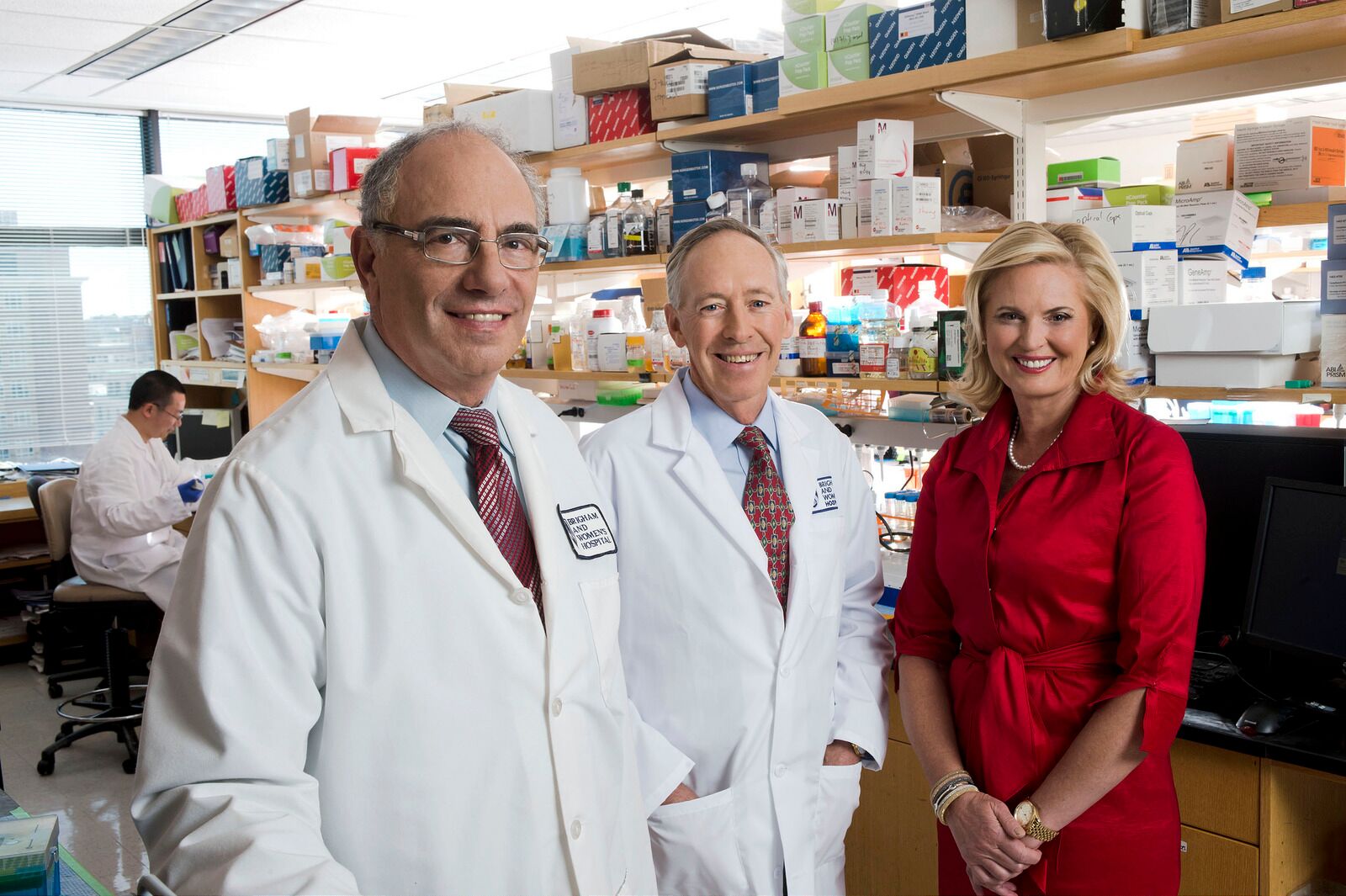Today, I bring you part four of my journey with multiple sclerosis. The disease completely changed my life; and unexpectedly, mostly for the better. I never thought I would say those words when first diagnosed but here we are. You can read part one here , part two here , and part three here.
At Brigham and Women’s Hospital in Boston, Dr. Weiner, a recognized global leader in MS clinical care and research, who had expanded his team’s efforts and applied his expertise to the study of Alzheimer’s, ALS and brain tumors was already collaborating with Dr. Dennis Selkoe, one of the world’s preeminent experts in Alzheimer’s disease. This expertise is contributing to meaningful work in research into Parkinson’s disease. These two doctors had the vision to bring their laboratories together in 1985 to break down silos and work more collaboratively across their respective areas of expertise.
Most research centers focus on a single issue, but we know that research done on one disease could lead to discoveries in another. And that if we want to speed up breakthroughs, we have to stop studying diseases in silos. (I’ll leave it to you to determine the lessons we could learn in the political sphere regarding breaking down silos.)
Brigham and Women’s Hospital’s successful research in Alzheimer’s is now fueling a potential breakthrough in Parkinson’s research. With all this great research already happening, I wondered how I could help. If I had any doubts, Dr. Weiner cleared those up quickly.
“Attention,” he said. “We need you to bring attention to the cause.” Other diseases have been top of mind because of awareness brought by high-profile people. But brain diseases have not enjoyed that type of focus. I knew I could help with this.
So, in the fall of 2014, I joined with Drs. Weiner and Selkoe to officially launch the Ann Romney Center for Neurologic Diseases at Brigham and Women’s Hospital in Boston where more than 250 researchers are collaborating together with other scientists worldwide to accelerate treatments, prevention, and cures for five of the most complex neurologic diseases: multiple sclerosis (MS), Alzheimer’s disease, ALS (Lou Gehrig’s disease), Parkinson’s disease and brain tumors.
The brilliant researchers at the Center have made great progress in the last two years. I could talk for an hour about all our exciting developments – from partnering with Google Life Sciences and Maria Shriver’s Move for Minds, to developing therapies for ALS. As well as the launch of the 50MillionFaces.org site that gives a voice to those suffering with a neurologic disease. I encourage all of you to visit the site and share in this community of hope.
Being diagnosed with MS was one of the scariest moments of my life—for me and for my family. But we were fortunate to have access to great care, treatment and therapy. Dr. Weiner gave my family and me reason to feel hopeful about the future, which inspired us to do the same thing for others.
I want those suffering from neurologic diseases to know they are not alone. Together, our stories will inspire hope and increase focus on the need for funding research, treatments and cures for five of the most devastating neurologic diseases of our time.
So here is what I take away from my experience with a debilitating disease which I often say is my greatest teacher. Abandoning fear, never giving up hope, persevering and finding ways that your experience can help others adds up to finding purpose and THRIVING. And my greatest wish is that you will find your path to thrive.


